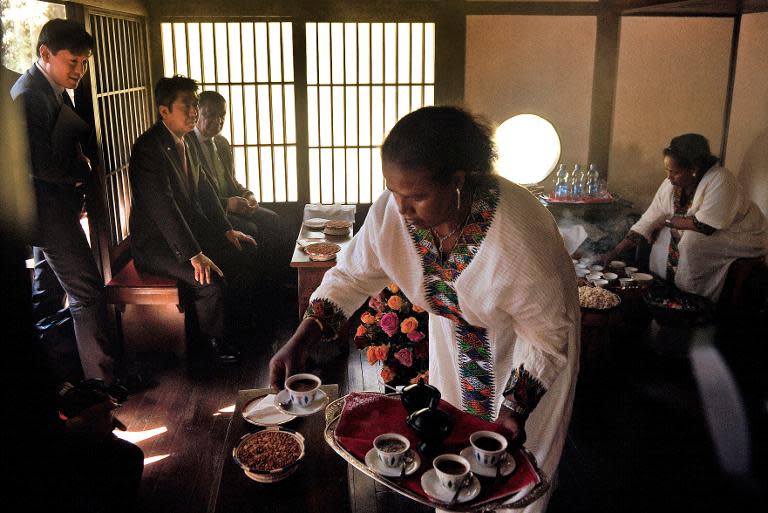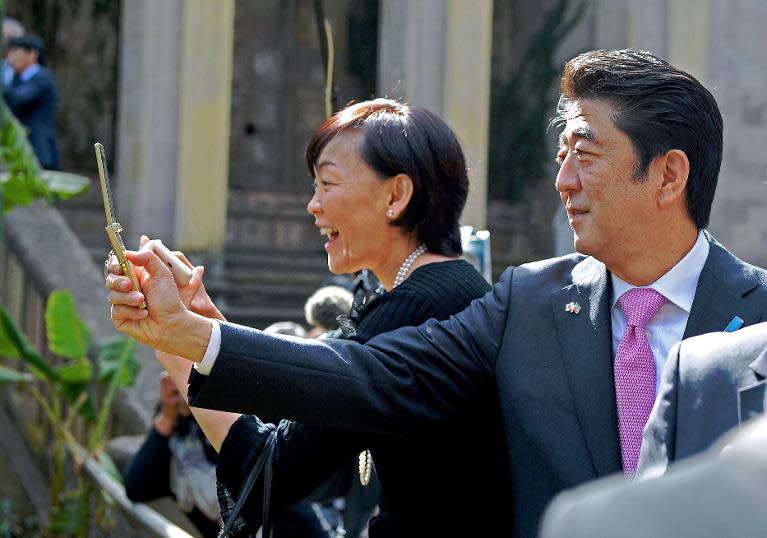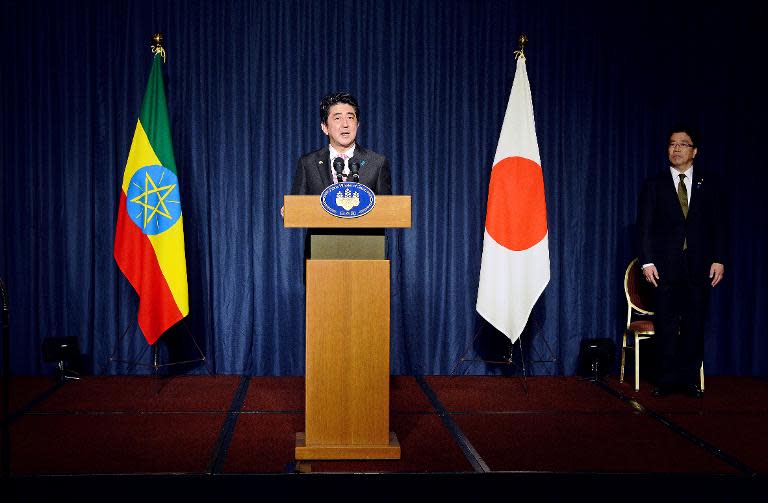Japan woos Africa with funds for peace and security
Japan's Prime Minister Shinzo Abe wooed Africa Tuesday pledging financial packages to boost peace and security on the continent, which has become a key trading partner with China. "In order to respond to conflicts and disasters in Africa, Japan is now preparing to implement assistance of approximately $320 million (234 million euros)," Abe said in his policy speech for the continent at the African Union (AU) headquarters in Addis Ababa, Ethiopia. As part of that deal, Abe pledged $25 million (18 million euros) to address the crisis in South Sudan, where fighting between government forces and rebels has taken the world's youngest nation to the brink of all-out civil war. On Monday, Abe urged warring South Sudanese parties to sign a ceasefire after weeks of violence that has left thousands dead. "All parties need to reach an early agreement to stop violence... There also needs to be sincere efforts towards national reconciliation amongst the ethnic groups," Abe added. Japan has some 400 troops posted in South Sudan as part of the UN peacekeeping force there. "Japan believes mediation from neighbouring states such as Ethiopia is vital and should be supported," Abe said. Japan has been engaged in Africa for decades, particularly in financing peacekeeping missions. In addition to the money earmarked for South Sudan, Abe said Japan would donate $3 million (2 million euros) to the crisis in the Central African Republic, which has been engulfed in conflict since last year. The head of the AU's executive council, Nkosazana Dlamini-Zuma, expressed her gratitude for Japan's contribution. "We welcome the support the prime minister has just announced for the African Union in peace and security in Central Africa, South Sudan, humanitarian assistance and capacity building," she said. Abe said strengthening business ties with Africa and promoting the private sector was a priority for his government, and pledged to boost Japanese investments on the continent. "Africa has now become the continent that carries the hopes of the world through the latent potential of its resources and its dynamic economic growth," he said, adding that Japan would offer a total of $2 billion in loans to the private sector, doubling a 2012 pledge. Key to this growth was the central role of youth and women on the continent, whose roles he said cannot be ignored. "We will centre the axis of Japan's diplomacy towards Africa on two groups: young people, who will without a doubt shoulder the responsibility for the future Africa, and women, who will give life to Africa's future generations," he said. Africa is home to several of the world's fastest growing economies, but also large populations of unemployed youth who represent both an opportunity and a potential burden. Abe's two-day trip to Ethiopia is his last stop on an Africa tour that has also taken him to Ivory Coast and Mozambique in a bid to bolster Japanese ties and business relations. The leader pledged to continue his political and economic cooperation with Africa. "I myself would like to visit Africa multiple times as necessary, in order to support vigorously these efforts to bring about a brilliant future for Africa," he said. China became in 2009 Africa's top trading partner at 13.5 percent, compared with trade at 2.7 percent with Japan, according to the OECD. Abe is expected to fly to Oman later Tuesday on the final leg of his trip.





